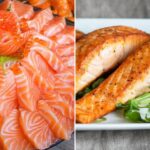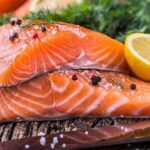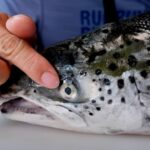Salmon
According to nutrition experts, 100g of salmon contains 2.3g of Omega 3, which helps lower cholesterol levels, maintain the flexibility of arteries and veins, and strengthen the heart. Omega 3 is also believed to help lower blood pressure and prevent arterial stiffness. Salmon is also an excellent source of protein, which is easy for the body to digest and absorb. This fish is rich in essential vitamins and minerals, including iron, calcium, phosphorus, selenium, and vitamins A, D, and B—all of which are necessary for proper nutritional metabolism in the human body.
Sardines
Sardines are small, slender fish that inhabit coastal regions. Despite their tiny size, they pack a powerful nutritional punch. They are an excellent source of protein, minerals, and vitamins A and D. Sardines are also a great source of long-chain omega-3 fatty acids, which have numerous health benefits.
Figure:
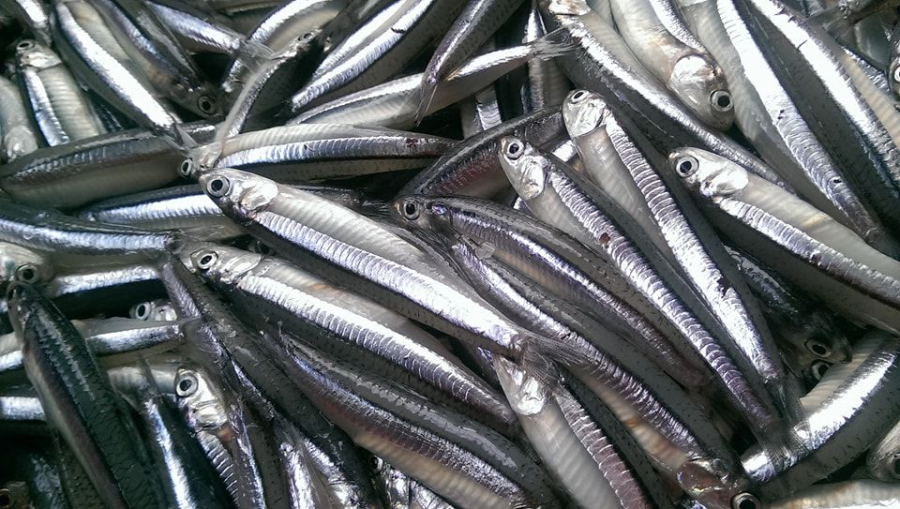
Inexpensive Yet Nutritious Fish
Tuna is a deep-sea fish with tender, delicious meat that is free from environmental contaminants, making it a healthy choice. The compounds in tuna meat help regulate cholesterol levels and prevent arterial stiffness. Tuna is especially beneficial for maintaining heart and brain health, and it plays a crucial role in preventing and treating cardiovascular and cerebrovascular diseases.
Additionally, tuna is rich in iron, vitamin B12, and omega-3, which can improve anemia and prevent cardiovascular issues in the elderly.
Herring
Herring is a highly nutritious fish, often referred to as an “oily fish” due to its high omega-3 fatty acid content, which is beneficial for brain health. Herring is typically smoked and packaged to ensure long-lasting preservation without compromising its nutritional value.
Figure:
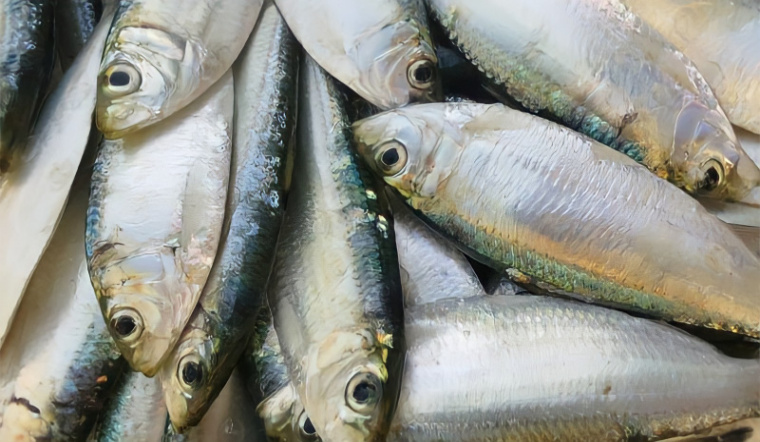
7 Delicious and Affordable Fish Options
Mackerel is a fast-growing fish species with high productivity. Every 100 grams of mackerel meat contains 166 kcal, 21.4 grams of protein, 7.4 grams of fat, and 486 mg of potassium.
Consumption of mackerel by older adults can help prevent cardiovascular diseases, memory loss, and type 2 diabetes.
Anchovies
Anchovies are an excellent source of omega-3 fatty acids, EPA, and DHA, which are essential for maintaining a healthy cardiovascular system. These fatty acids help ensure smooth blood flow and a healthy heart, reducing the risk of cardiovascular diseases. Anchovies are also rich in vitamin D, which is beneficial for bone and joint health in the elderly.
Cod
Cod is an excellent source of omega-3 and omega-6 fatty acids. It is rich in vitamins B12, B6, E, A, and C, as well as minerals like phosphorus, potassium, and selenium. Cod is also a lean fish with few calories, making it an excellent choice for weight loss.

























